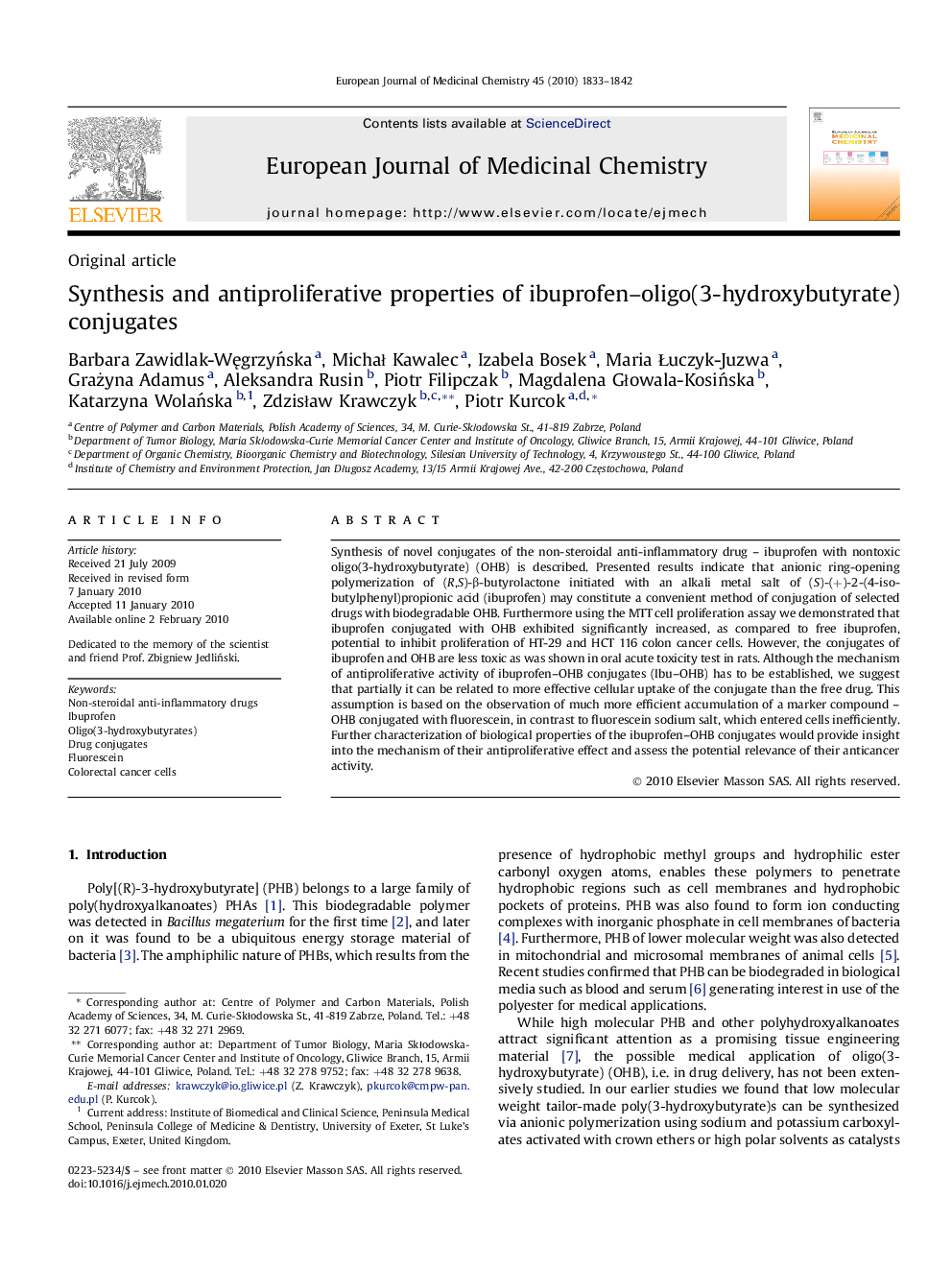| Article ID | Journal | Published Year | Pages | File Type |
|---|---|---|---|---|
| 1396509 | European Journal of Medicinal Chemistry | 2010 | 10 Pages |
Synthesis of novel conjugates of the non-steroidal anti-inflammatory drug – ibuprofen with nontoxic oligo(3-hydroxybutyrate) (OHB) is described. Presented results indicate that anionic ring-opening polymerization of (R,S)-β-butyrolactone initiated with an alkali metal salt of (S)-(+)-2-(4-isobutylphenyl)propionic acid (ibuprofen) may constitute a convenient method of conjugation of selected drugs with biodegradable OHB. Furthermore using the MTT cell proliferation assay we demonstrated that ibuprofen conjugated with OHB exhibited significantly increased, as compared to free ibuprofen, potential to inhibit proliferation of HT-29 and HCT 116 colon cancer cells. However, the conjugates of ibuprofen and OHB are less toxic as was shown in oral acute toxicity test in rats. Although the mechanism of antiproliferative activity of ibuprofen–OHB conjugates (Ibu–OHB) has to be established, we suggest that partially it can be related to more effective cellular uptake of the conjugate than the free drug. This assumption is based on the observation of much more efficient accumulation of a marker compound – OHB conjugated with fluorescein, in contrast to fluorescein sodium salt, which entered cells inefficiently. Further characterization of biological properties of the ibuprofen–OHB conjugates would provide insight into the mechanism of their antiproliferative effect and assess the potential relevance of their anticancer activity.
Graphical abstractThe synthesis of ibuprofen conjugates with oligo(3-hydroxybutyrate) is described. These conjugates were found to exert significantly higher antiproliferative activity against colon cancer cells than the free ibuprofen.Figure optionsDownload full-size imageDownload as PowerPoint slide
